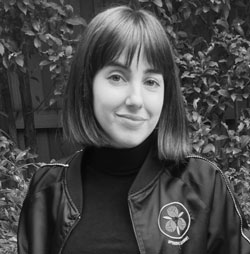Which type of job in visual effects is a better fit for you: specialist or generalist? Historically, the VFX industry has veered more toward specialist roles. However, with the introduction of new technologies, more opportunities for generalists are arising, and the lines are beginning to blur. The prevalence of these two roles also often depends on factors like the size of a studio and the scope of a project.
To help you decide whether a specialist or generalist role is right for you, we let the experts weigh in, providing great advice and industry insights.
But first, let's define specialist and generalist.
What is a VFX specialist?
A specialist is someone who focuses on a specific area or skill within their industry. In the visual effects industry, this could mean specializing in a specific software program, animation technique, or aspect of the VFX process, such as compositing or 3D modeling.
Specialists often have a deep understanding and expertise in their chosen area, allowing them to excel at their job and potentially advance to higher positions within the industry. However, they may also have limited knowledge and experience outside of their specialty.
What is a VFX generalist?
A generalist in the visual effects industry is someone who has a broad range of skills and can handle multiple tasks across the VFX pipeline. They may not have the depth of knowledge or experience in one particular area that a specialist does, but they have a well-rounded understanding of the various aspects of their job and can adapt to different tasks and projects easily.
This type of person can be valuable in a team setting because they can assist with various tasks and provide support across different steps in the pipeline, helping to bridge departmental gaps.
Specialist or generalist - what are VFX and game studios looking for?
CG Spectrum's Department Head of Animation, Mark Pullyblank, holds a wealth of knowledge from his years of experience in the VFX industry. Touching on the subject of what studios are looking for, he explained that it all depends on where in the industry you are looking.
Smaller studios generally have more demand for people with general knowledge, while larger studios are typically where you go if you want to concentrate on a specific area.
Lead FX artist Greg Hird-Rutter (For Honor, Assassin's Creed IV: Black Flag, Tron: Revolution) believes that, typically, even generalists still have one skill or role they like to do more. If you do find that you want to concentrate your work on a specific area, then you probably want to look into a larger studio where they have room for people with specific skills.
"The important thing, if you are more of a generalist, is don't spread yourself too thin." -Greg H
Greg's advice is that if you are applying at a smaller studio as a generalist, it's good to show you have a broad understanding of multiple skills, but you should still have a strong focus. If you're going to apply for a job at a large VFX studio or a AAA game studio, you should focus more on a specific discipline, reinforcing to your interviewers that it's what you are good at and what you want to do (while using your experience in other areas as an additional selling point).
What VFX roles are good for generalists?
Here are some VFX career paths where it's often beneficial to be more of a generalist (keeping in mind that even generalists usually have one area they know better than others):
- Environment artist — it's useful for environment artists to also have a grasp of 3D modeling and digital matte painting.
- Rigging artist — being familiar with the job of a 3D animator and a character FX artist can help in the role of a rigging artist.
- 3D modeler — also knowing the skills of a texture artist and a look-dev artist can prove beneficial.

Lead Modeler at Digital Domain, Francisco Alvarez, says that if you are working as a 3D modeler, knowing texturing and even shading (look-dev) can be really beneficial. It allows you to move down the pipeline as work progresses and ensures you know the correct processes and procedures to pass an asset on to the next artist. Studios for both film and games greatly appreciate people like this.
What VFX roles are good for specialists?
Here are some in-demand VFX career paths that you can specialize in (some of which even have further specializations):
- FX artist — an FX artist could then further specialize as a character FX (CFX) artist.
- 3D animator — an example of a specialist role within 3D animation is a crowd animator.
- VFX compositor — the role of a VFX compositor is in high demand because they are responsible for compiling all the other departments' work together to create the final image.
Simon Warwick, Department Head of Real-time Virtual Production, said that if you are thinking of specializing, be sure that it's not an area that will likely be outsourced.
You have to think about the content you are creating—is it something that can be done externally from a studio, and if it can, then it very well might be. -Simon W
Any job that needs direct input from VFX supervisors, artists within the studio, or designers, are the type of roles you want to specialize in.
How do I demonstrate I'm a specialist or generalist on my demo reel?
When creating a stand-out demo reel, remember to tailor it for the type of job (and the studio) you are applying for—whether that be specialist or generalist—because you're likely to get hired based on what recruiters see you can do in your reel. This may mean you end up with multiple reels, which is fine.
Here's some more advice on what to include on your demo reel by Katerina Dzolganovski, Modeling Supervisor at Digital Domain.
Whether you want to become a VFX specialist or a generalist, we have courses to get you started down the right career path for you!
Specialists and generalist both start their journey by learning the fundamentals before broadening or narrowing their scope. Whatever your path—whether you want to focus on animation, 3D modeling, FX, compositing, digital painting, virtual production, or a mix of areas— CG Spectrum has courses to ensure you have the right foundations to build your career upon.
With industry-experienced mentors and a dedicated Career Development Manager, you'll also have opportunities to seek further expert advice on where your skills lie and what might be the best trajectory for you.
Explore our courses and see all the exciting directions you can take your career in film and games!

Related Links




